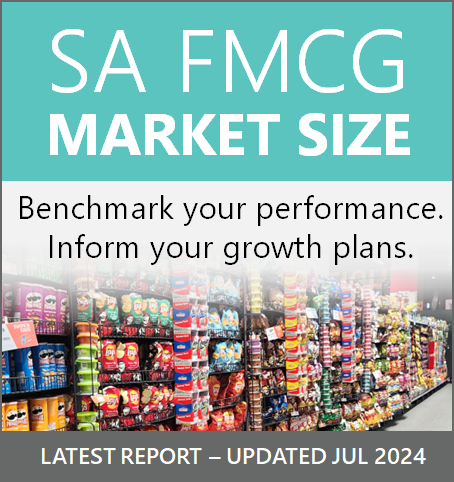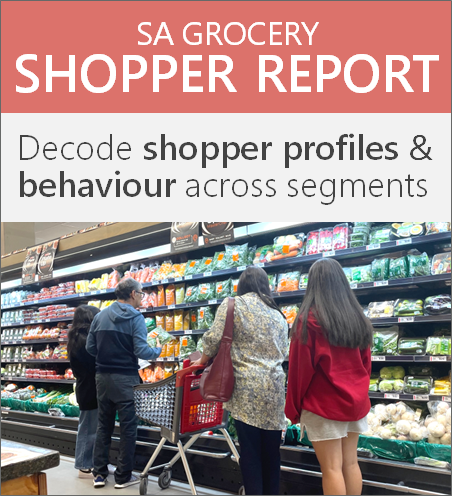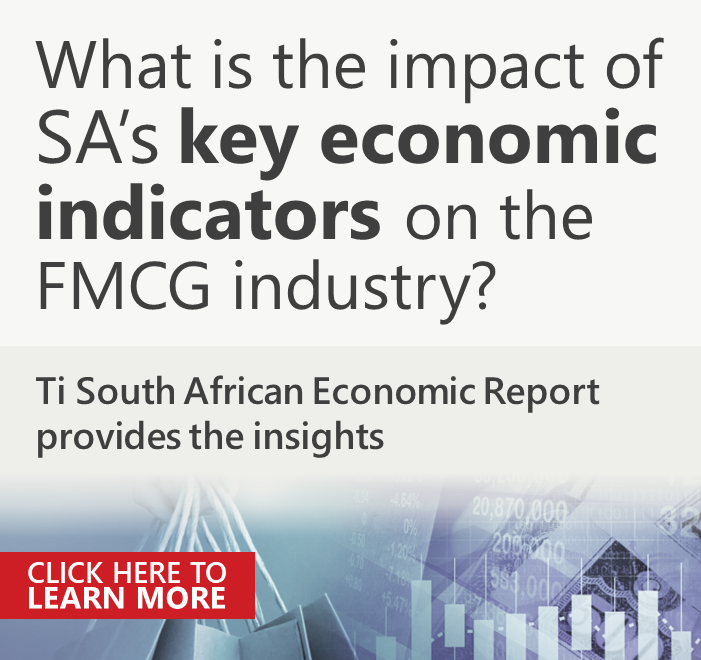
THIS ISSUE: 14 Jul - 20 Jul
YOUR NUMBERS THIS WEEK
RETAILERS AND WHOLESALERS
-
Massmart Dark tidings
Bad news from the Men in Black over at Massmart, who have issued their mid-year trading update: in the 26 weeks through to 25 June, sales grew just 0.5% to R42.5bn, against internal inflation of 3.2%, with like-store sales declining -1.6%. Going through the divisions, like-store sales were down -3.5% at Massdiscounters, -0.2% at Massbuild and -3.3% at Masscash. The glimmer of light emanated from Makro, with Masswarehouse like-store sales up 1.5%, admittedly against inflation of 3.9%. Food sales outperformed clothing and GM, with the former increasing 3% and the latter declining -2.9%. Analysts were not what you’d call flabbergasted by the announcement, with most seeing prospects for improvement in the second half, particularly if a rate cut comes through, and chance of a modest turnaround in 2018.
Comment: Again, the performance of our retailers, in both food and GM, is directly proportional to the poor economic and shaky political circumstances of our current ambit. And in the case of Massmart, it is a time of back-end efficiency focus and driving relevant cross-divisional collaboration, which will no doubt start shifting performance over the next year.
-
-
Woolworths Tightening the cummerband
A trading update from Woolworths, and it tells a by-now familiar story of a well-run business up against the economic and social realities of the day: sales for the year through June were up just 3%, impacted by tough second-half conditions in both South Africa and Australia. Sales of clothing and GM back home were up just 1.4% against internal inflation of 6.6%, and like-store sales were down -0.9% against retail space growth of 2.2%. Food fared slightly better, growing ahead of the market at 8.6%, with internal inflation of 8.4%; like-store sales were up 4.6% and retail space growth +7.6%. Down under, sales at David Jones were up 1%, while Country Road grew 5.1% despite difficult trading conditions. The really bad news, however, is that the retailer could see a decline in headline earnings per share (HEPS) – the most reliable indicator of core profitability – by between 5 and 10%.
Comment: The continued performance of Woolies against economic headwinds used to be a watchword. As the reality of negative growth sets in even for middle- to upper-income consumers, and upper-income consumers seem to be thinking twice about paying what at times is regarded as excessive premium pricing in food, this is no longer reliably the case.
-
-
Pick n Pay Jargon, much?
Some snippets from Pick n Pay this week, which while embattled in the bricks and mortar space, is making strides in the more ephemeral realms of loyalty and technology. It turns out that The Big Blue is leveraging cloud computing to offer customer-specific pricing through its popular, six million-strong Smart Shopper loyalty programme. And the love is not reserved just for the man, or indeed woman on the street. On Pick n Pay’s B2B platform, the retailer is able to offer specific pricing to businesses like B&Bs and office parks, including Amazon’s developer centre in Cape Town, which is one of their biggest customers. And in a bit of not-unexpected symbiosis, Pick n Pay is exploring using Amazon Web Services (AWS) to clear its data centre by moving its entire digital platform to the cloud in the next couple of years, in order to improve the business’ speed and agility.
Comment: Initiatives like this will play an important role in driving growth in a retailer still struggling to find its way back to the top of the retail hierarchy.
MANUFACTURERS AND SERVICE PROVIDERS
-
Tiger Brands Hungry hearts
The Tiger Brands Foundation piloted its in-schools breakfast programme in collaboration with the Department of Basic Education at six schools in Alexandra township, six years ago. Today, it serves breakfast every school day to just under 64,000 learners at 92 schools across South Africa, and has just served its 50-millionth meal. The Foundation was established by Tiger as a special purpose BEE vehicle, with a focus on issues of food and nutrition security, and is funded through a bi-annual trickle dividend from the company. The programme has led to a decline in absenteeism in the schools where it is implemented, and even, anecdotally, to a decrease in petty crime in the surrounding neighbourhoods because learners are in school instead of roaming the streets. Tiger would like to see the programme adopted or replicated by other private sector entities, some of which have already come on board, including Nungu Marketing and Distribution, the Shishen Solar Facility, Tetra Laval and the Gouda Wind Farm.
Comment: “CSI is not a nice-to-have nor should it be used as an instrument to polish one’s image. In South Africa, CSI is a necessity,” says the foundation’s director, Eugene Absolom.
-
-
Liquor Shelf Help
The trend towards upsizing liquor SKUs by the big players has one perhaps (and we’re being charitable here) unintended consequence: it’s forcing smaller competitors off the shelves. Stands to reason: when a twelve pack or a bigger can from Anheuser-Busch jostles for space on the shelves, someone’s going to topple. And if the proposed ban on liquor advertising comes into effect, shelves will increasingly become contested territory in the war for the hearts and minds of SA’s booze hounds. This, together with the increasing cost of listing fees, could mean that smaller producers – like SA’s many independent wine producers – will battle to get listed at all, as is increasingly the case in some of the large chains.
Comment: OK, market forces and all that. But one of the great strengths of SA retail – particularly liquor retail – is the diversity of its home-grown offering. And it’s a pity when this is threatened.
TRADE ENVIRONMENT
-
Consumer Confidence Hard Times
Having ticked up from -10 in the last quarter of 2016 to -5 in the first quarter of this year, consumer confidence is once more in decline, slipping back to -9 in the second quarter. This after the backdrop of an average +4 since we got rid of the last gang of thieves in 1994. The latest numbers mark the longest losing streak for the indicator since 1982, at 12 consecutive quarters. This in the wake of the ratings downgrades and the news that we are now in recession. And perhaps nowhere is this decline being felt more than at the till points, where, as evinced by the grim Massmart and Woolies updates (above), SA’s retailers, the mainstay of the economy in recent years, are finally taking strain. Combined with modest wage hikes and recent tax increases, things are unlikely to improve in the short term, and job losses in our sector are unlikely to be confined to Stuttafords (see below).
Comment: Hard times, indeed. But we’ve been tested before, and come through.
IN BRIEF
-
Retailers Ubuntu
As Stuttafords – the last of SA’s traditional department stores – collapses under the weight of the years and the declining relevance of its offering, several other retailers, including Mr Price, Dis-Chem and Truworths – have promised in an act of humanity to guarantee employment to at least 15% of the workforce of 800, who face a bleak future when doors close at the end of the month.
-
-
Poultry Down, on the farm
As news spreads that two more farms have been discovered with outbreaks of avian influenza, Namibia‚ Botswana‚ Zambia, Zimbabwe and Mozambique have all halted imports of poultry products from SA. This is terrible news for the already embattled industry, and hints at more hardship to come. We’ll keep you posted.
Sign up to receive the latest SA and international FMCG news weekly.







1.png)
